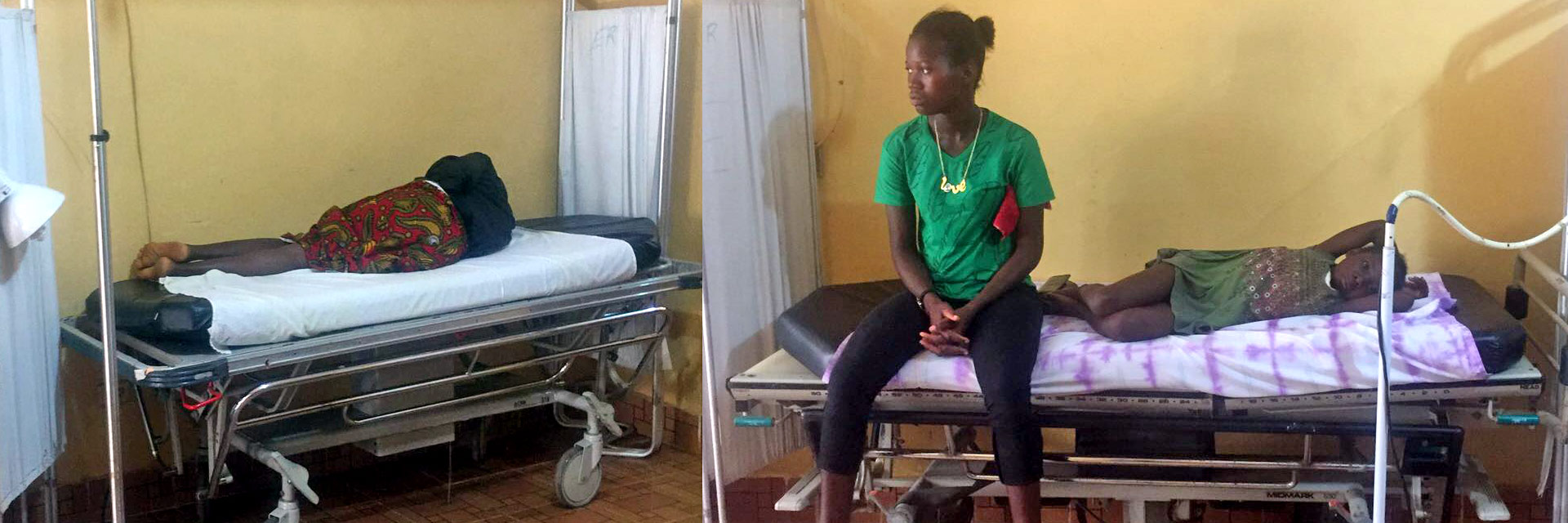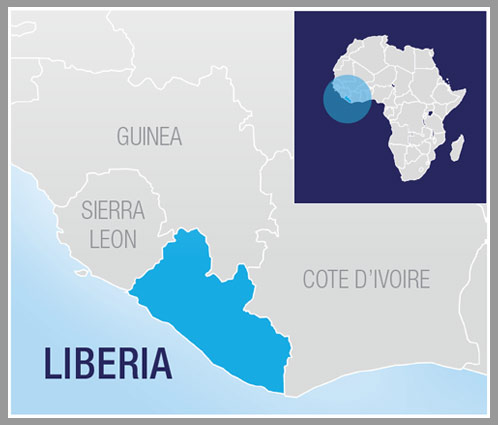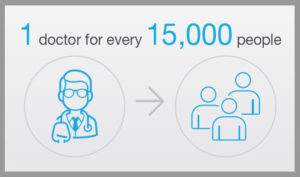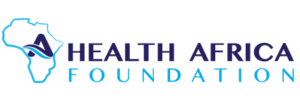
Health Africa Foundation (HAF) is a non-profit organization whose mission is to provide donated medical equipment and supplies to under-resourced healthcare facilities in Liberia and other African countries. HAF was founded in 2016 by Lisa Gwaikolo, a Liberian Respiratory Care Practitioner in the US.
 The foundation is led by a group of Liberian health care professionals who have a firsthand experience with the daily challenges of delivering clinical services to patients in a resource-constrained environment. HAF is a registered 501(c) 3 organization headquartered in Southampton, Pennsylvania, with a sub-office in Liberia.
The foundation is led by a group of Liberian health care professionals who have a firsthand experience with the daily challenges of delivering clinical services to patients in a resource-constrained environment. HAF is a registered 501(c) 3 organization headquartered in Southampton, Pennsylvania, with a sub-office in Liberia.
With one of the highest infant and maternal mortality rates in the world, Liberia is in dire need of basic medical equipment and supplies that enable medical professionals to save lives and provide quality health services to the population.
The foundation seeks donations of new and used functioning medical equipment and supplies for Liberian hospitals, with plans to scale its reach to neighboring African countries. By working in Liberia, the foundation can respond to an immediate opportunity in Liberia’s healthcare system to deliver basic medical care.
By partnering with HAF, you will complement efforts by other donors, organizations and well-wishers working to rebuild Liberia’s healthcare system after 20 years of civil war and under-investment. HAF is committed to transparency in its reporting and communication with all its donors and partners.
Level of Medical Need
 During Liberia’s two civil wars in the 1990s and early 2000s, an estimated 95 percent of the healthcare facilities were destroyed. By the war’s end in 2003, fewer than 20 of the 400 trained government doctors remained in the country. Since then, the government of Liberia and international nongovernmental organizations have reconstructed some of the healthcare facilities and begun training a new healthcare workforce. However, the country is still experiencing serious public health challenges as indicated below.
During Liberia’s two civil wars in the 1990s and early 2000s, an estimated 95 percent of the healthcare facilities were destroyed. By the war’s end in 2003, fewer than 20 of the 400 trained government doctors remained in the country. Since then, the government of Liberia and international nongovernmental organizations have reconstructed some of the healthcare facilities and begun training a new healthcare workforce. However, the country is still experiencing serious public health challenges as indicated below.
One of the Highest Infant and Maternal Mortality Rates Globally
Liberia remains among the top-10 countries with high infant and maternal deaths on the African continent and the world. Some 1,072 women per 100,000 of those giving birth die due to birth related complications. This is 46% higher than the maternal death ratio of low-income countries (496), and three times higher than the global ratio (216). The high maternal death rate is partly due to the low use of skilled birth attendants and a high number of home births (55%) in rural areas compared to 34% in urban areas.
One in 11 children in Liberia die before reaching the age of five. Birth-related complications, poor infant nutrition, malaria and childhood diseases, such as diarrhea, contribute to the high under-5 mortality rate in Liberia. Proper medical attention and hygienic conditions during delivery can reduce the risks of complications and infections that can cause morbidity and mortality to the mother or the infant.
A Severe Shortage of Medical Equipment and Supplies
Most healthcare facilities in Liberia lack basic medical devices to perform life-saving clinical procedures. Substantial budgetary constraints result in inadequate and deteriorated medical equipment where it is available. Re-use of any available equipment, devices and supplies – including injectable devices – pose an inherent public health risk, including occupational exposure to the healthcare workers.
In 2009, a foreign government donated a 64-slice CT scanner and MRI equipment to the John F. Kennedy Medical Center (JFKMC) – the largest tertiary public hospital in the country – located in Monrovia. In 2011, the Chinese government donated one computed Tomography (CT) scanner to the Jackson F. Doe Memorial Regional Referral Hospital – the second tertiary hospital in the country, located in Tappita, 134 miles (6-8 hours) from Monrovia. This CT scanner has been the only one functioning, helping to reduce the number of partially diagnosed medical conditions within the country. The machine frequently breaks down and can take months to repair.
However, construction of a facility to house a recently donated MRI machine to the Jackson Doe Hospital is nearing completion. This machine, donated by the World Health Organization (WHO), will be the only MRI machine in the Republic of Liberia.
An Under-Staffed Health Care System
A shortage of doctors and other skilled healthcare workers in Liberia strains the country’s capacity to respond to its population’s healthcare needs. The armed conflict that ravaged the country between 1989 and 2003, the emigration of three quarters of Liberian doctors6 and the death of at least 184 healthcare workers from the Ebola outbreak between 2013 and 20167 exacerbated the paucity of healthcare workers.
As of 2015, Liberia had two biomedical engineers capable of repairing major medical equipment8 and by July 2016, some 298 medical doctors,3 a ratio of one doctor for every 15,000 people.
Long Distances and High Transportation Costs to Health Care Facilities Impede Patient Access
Access to healthcare facilities is a challenge for most of Liberia’s population. Some 60% (1.2 million people) of the rural population lives more than 5 km (3.1 miles) from the nearest healthcare facility. The poor road network, long distances and high costs of transportation delay timely access to healthcare facilities.
Liberian’s spend an average of $2.21 for transportation to a healthcare facility in an urban area and between $1.75 and $3.45 in rural areas, which is high when compared to the average daily per capita expenditure of $1.75. Patients often need to travel from a clinic to a hospital to access a higher level of care and skilled personnel. However, travel times to the hospital range from 29 minutes to 52 minutes in urban areas and between 91 minutes and 196 minutes in rural areas.
These combined factors contribute to low use of preventive healthcare services, such as prenatal care for expecting mothers and the subsequent preventable deaths and disabilities.
Late Diagnosis and Poor Management of Non-Communicable Diseases increases Liberia’s Mortality Rate
Non-communicable diseases (NCD) account for 34% of total deaths (34,000) in Liberia each year. Cardiovascular diseases account for 11% of all NCD deaths, followed by chronic respiratory diseases (6%), cancer (5%), diabetes (2%) and other NCDs (10%). While the pattern of the leading NCDs is similar globally, low-income countries like Liberia account for 82% of the global NCD deaths.
Changes in lifestyle, poor healthcare seeking behavior and an inadequate healthcare system – characterized by the lack of basic medical equipment such as blood pressure monitors – contribute to the poor management of NCDS and the related mortality rates in countries such as Liberia.
TEAM MEMBERS

Lisa Gwaikolo

Jessica Halm

Dr. Lekilay Tehmeh

Dr. Cozie Gwaikolo
Best Practice Commitment
HAF will observe the World Health Organization’s recommended best practices in the solicitation, distribution and use of medical devices, equipment and supplies donated by your entity. These include:




